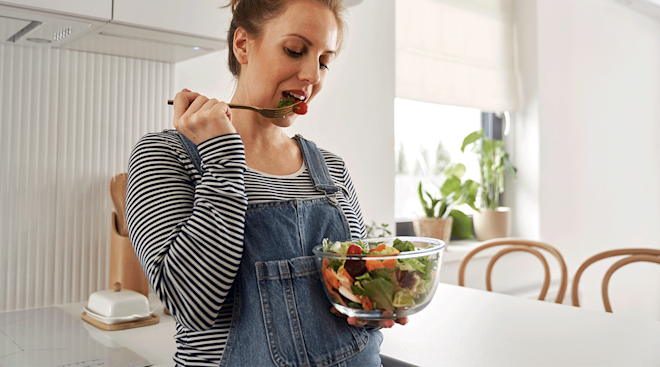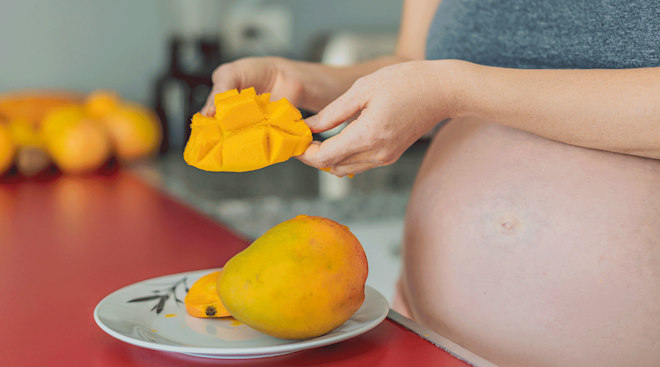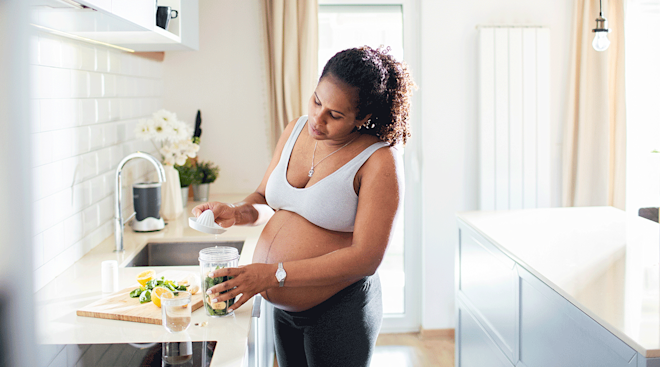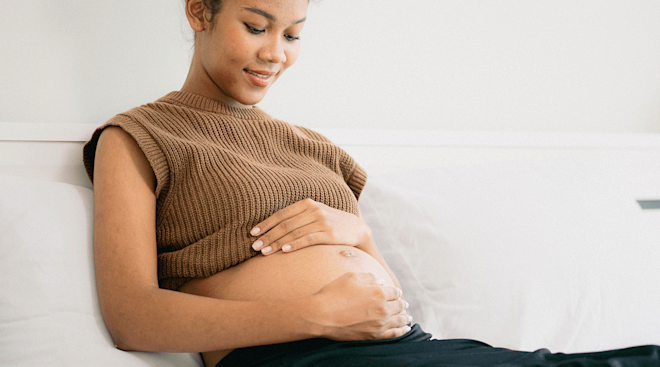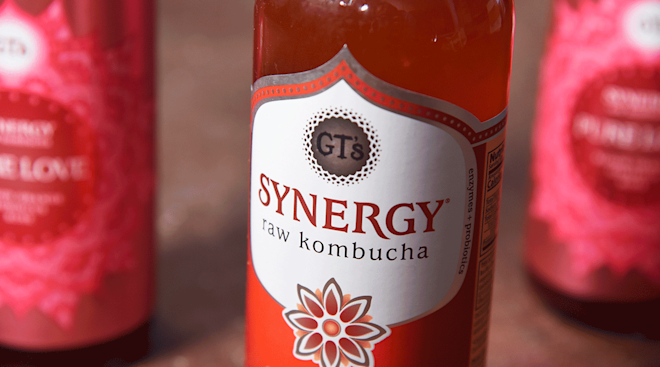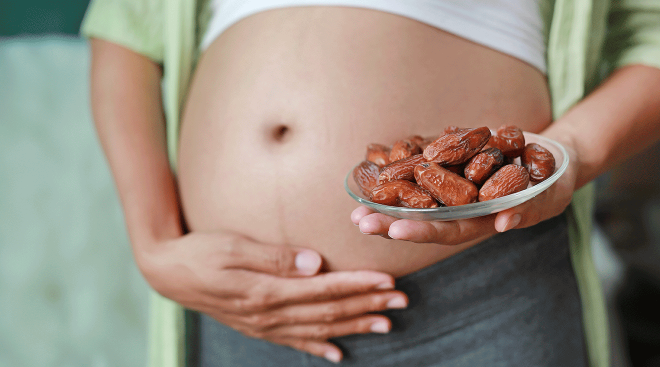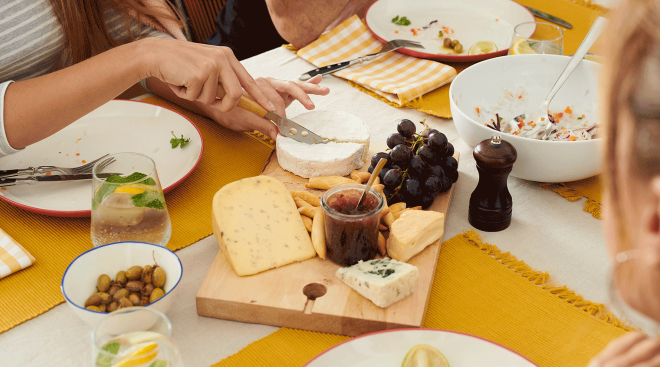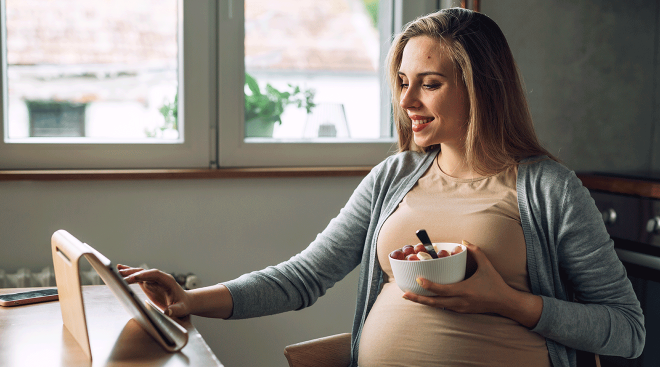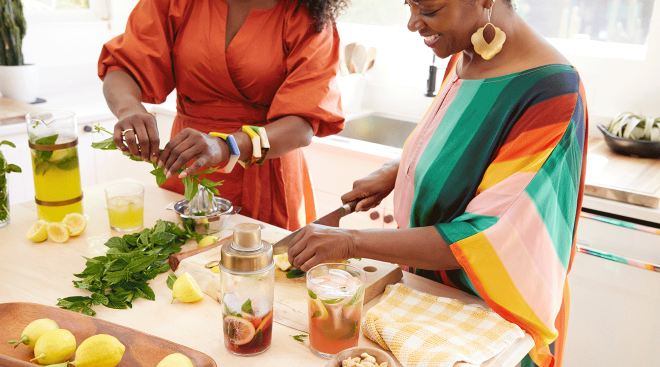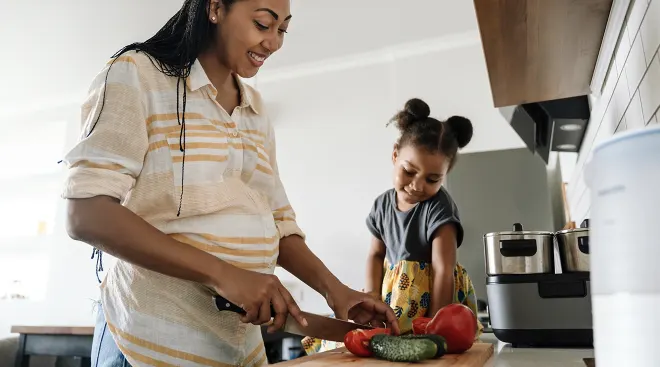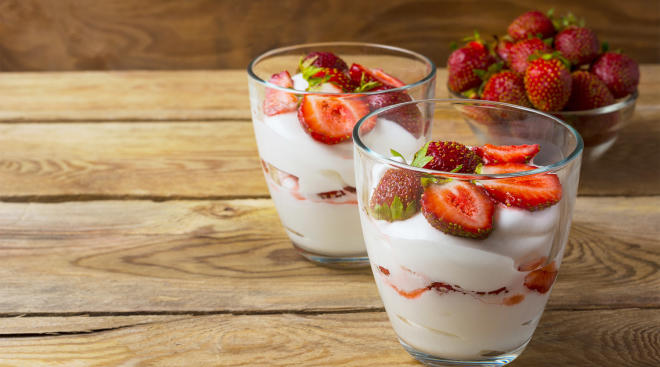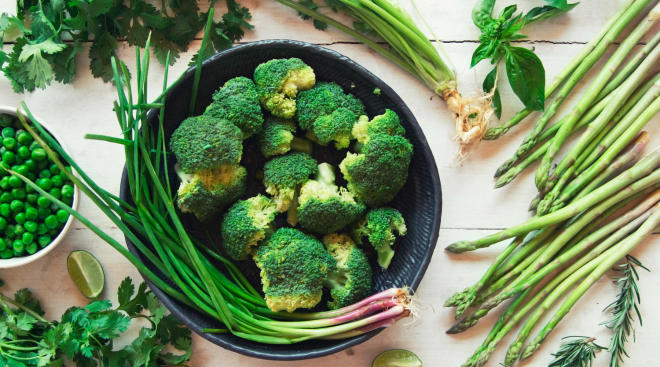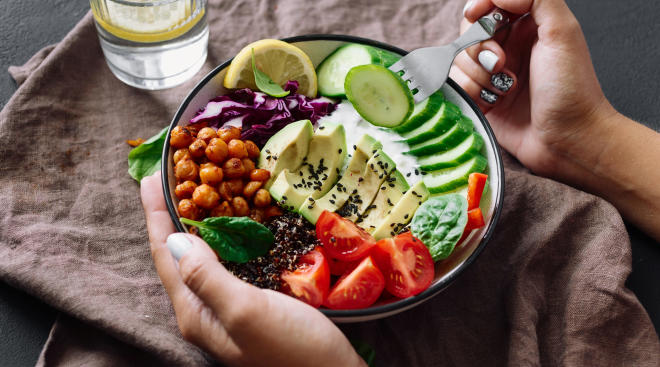Don’t Fall for These 5 Pregnancy Nutrition Myths
For many women, pregnancy is a nutrition wake-up call. Suddenly it becomes really important to eat right. After all, you’re not just eating for one anymore.
You’ve probably heard a lot of crazy nutrition dos and don’ts. As a nutritionist, I’ve pretty much heard them all too. With all the (often unsolicited) nutrition advice, it’s not always easy to separate fact from fiction, especially for first-time moms—which is why I’m sorting through all the nutrition myths you commonly hear during pregnancy.
Myth #1: It’s Okay, I’m Eating for Two
This might be the myth I hear most often. It’s unlikely that many people who say they’re “eating for two” are literally doubling the amount of food they eat during pregnancy. Still, some people are surprised to find out that you don’t need extra calories to feed a growing baby until later on in pregnancy. For the first trimester, you don’t need any extra calories. Calorie needs increase in the second trimester, but only by about 340 calories per day. That’s roughly equal to a serving of Greek yogurt and a banana. In the third trimester, aim for about 500 extra calories per day.
Not into the whole calorie-counting thing? I don’t blame you; it can get pretty tedious. Intuitive eating can help you differentiate between cravings and actual hunger. Before you eat, use a hunger scale to check in with your body. Then, halfway through the meal or snack, check in again. If you’re at a 6 or above, stop eating and save the leftovers. If you’re below a 6 (satisfied) on a scale of 1 (starving) to 10 (uncomfortably full), continue eating slowly until you’re satisfied. This is one easy way to prevent overeating without counting calories.
Myth #2: Caffeine Is Strictly Off-Limits
For many busy women, myself included, a morning cup of coffee is basically non-negotiable. Good news: You don’t need to forgo caffeine to have a safe pregnancy. Moderate caffeine intake during pregnancy—up to 200 milligrams per day—is perfectly fine. That’s about one to two 8-ounce cups of coffee or tea per day (depending on the type). This amount is backed by scientific research and authorities like the American College of Obstetricians and Gynecologists. So there’s no need to worry about the occasional cup of coffee or two.
Remember that caffeine from all sources (yes, even chocolate has a little bit) counts toward your daily total. If you aren’t ready to go cold-turkey on coffee, make sure to keep a running total of your caffeine intake throughout the day. Also, it’s important to talk to your doctor if you have concerns about your caffeine intake, especially if you have a history of high blood pressure.
Myth #3: Skip the Seafood
Many fall for this myth, hook, line and sinker. All fish puns aside, nutrition experts actually recommend eating fish during pregnancy. Undercooked fish like sushi may be off the table, but that doesn’t mean you should avoid all seafood. The 2020-2025 Dietary Guidelines for Americans encourage pregnant and breastfeeding women to eat two to three servings (8 to 12 ounces) of seafood each week.
Seafood has tons of nutrients to support baby’s development, including healthy omega-3 fatty acids and protein. Salmon and certain kinds of shellfish, like crab and shrimp, are especially good options for increasing your omega-3 intake. Original recommendations to avoid fish were based on concerns about mercury. These concerns are legitimate, but they only apply to a few species of large fish: bigeye tuna, tilefish, shark, swordfish, marlin, orange roughy and king mackerel.
Myth #4: It’s Too Complicated to Eat Out
It’s true that in recent years eating out has gotten a little more complicated. You’ll have to determine your own level of comfort with dining at a restaurant (especially if it’s cold, flu and covid season and you’re not yet vaccinated), but aside from that, pregnancy alone shouldn’t deter you. Sure, eating away from home during pregnancy can sometimes be daunting, since you don’t always have total control of how the food is prepared. But simple tricks like asking your server to reheat deli meat until it’s steaming or scanning menus for pregnancy-friendly options (thank you, veggie sushi!) can help make eating out while pregnant a whole lot easier. With a little creativity and some help from friends who have been there, you can easily balance your food safety and nutrition needs when eating away from home.
Myth #5: You Have to Eat Meat to Have a Healthy Pregnancy
Vegans and vegetarians can meet their protein, vitamin and mineral needs from a variety of sources during pregnancy—no animal products required. According to the Academy of Nutrition and Dietetics, plant-based diets can be safe and healthy during pregnancy. You just have to get creative to make sure you and your growing baby are getting all the nutrients you need. Yogurt (especially Greek yogurt), soy products and eggs are just a few of the many great vegetarian protein sources available. Your doctor can also help you find the right prenatal vitamin to round out your micronutrient intake.
Please note: The Bump and the materials and information it contains are not intended to, and do not constitute, medical or other health advice or diagnosis and should not be used as such. You should always consult with a qualified physician or health professional about your specific circumstances.
Plus, more from The Bump:
Liz Sanders, MPH, RDN, is a dietitian and resident nutrition expert at the International Food Information Council Foundation, a nonprofit organization dedicated to connecting the public with science-based food and nutrition information. She is passionate about helping moms and moms-to-be make healthy nutrition choices for their families. When she’s not writing for foodinsight.org, you can find her on stage performing or teaching improv comedy.
University of California, Berkeley, The Hunger-Satiety Scale
American College of Obstetricians and Gynecologists, How much coffee can I drink while I'm pregnant?, October 2020
United States Department of Agriculture, 2020-2025 Dietary Guidelines for Americans, 2020
Food and Drug Administration, Advice About Eating Fish, October 2021
Academy of Nutrition and Dietetics, Position of the Academy of Nutrition and Dietetics: Vegetarian Diets, December 2016
Learn how we ensure the accuracy of our content through our editorial and medical review process.
Navigate forward to interact with the calendar and select a date. Press the question mark key to get the keyboard shortcuts for changing dates.

































